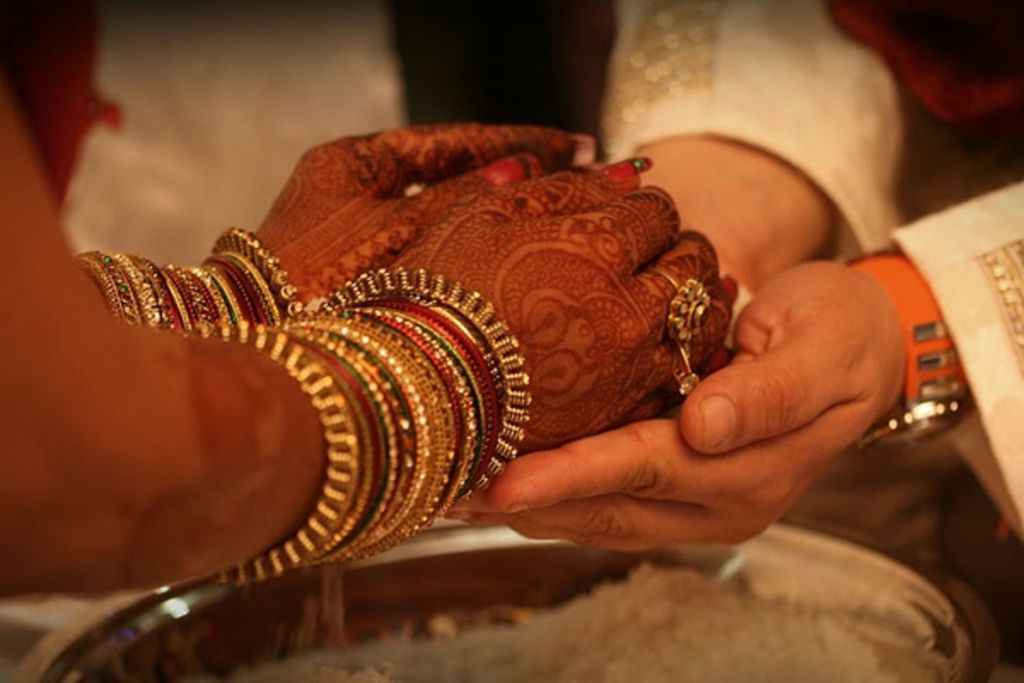“You will discover oneness, a sense of belonging when you find that human traits are the same, despite the difference in pickles, papads or the idol of the deity worshipped”
By Bilal Ahmad Bhat

Intercaste marriage is a myriad of lovable and bitter adjustments. Unlike same cast weddings, the differences start on to demonstrate even closer to the wedding ceremony takes place.
It raises more than just perplexed eyebrows. Weddings being all about tradition, customs and rituals, the variation are a lot of. By and large, these are marriages of choice—or, what we generally call: feel affection, for (love) marriages, where the girl and the boy make the initial decision to come together in a marital alliance.
There may be confrontation from the parents of both sides, making an Intercaste alliance into a more complicated ‘arrangement’ than even the arranged ones. But then, customs or traditions are hardly ever the reasons which can break up affairs.
The differences can be trouble-free to grip, if you mark out some crucial set of laws for yourself. Especially the bride who may find it unapproachable to be amongst people whose language is diverse, costume in a different way, have specifically unusual eating habits and follow a different way of life than what she has been follow in her growing years.
Naturally it requires a certain psychological steeling of sort.
One of the best ways to save yourself from a cultural distress is to make acquainted yourself with your husband’s family. If you know, for instance, that your in-laws follow and believe in certain religious or traditional customs, you will find it easier to handle the stark differences when you are in her house. During your visits, take pains and ask questions on how they celebrate special festivals or observe fasts etc. You will find that there are similar reasons and beliefs at the core of varying customs. It is just the exterior difference.
Often, different castes worship different deities, but if you care to understand the philosophy behind the worship, you will soon consider yourself comfortable. It won’t be very different from what your mother told you.
It is quite unapproachable to wake up one fine morning after the most significant day in your life to find yourself amongst groups of relatives and guests, speaking a dialect that you do not understand.
Of course, if your in-laws are sensitive, they won’t expect you to pick enclosures and start tutoring yourself on a new language. If you know their language and can expressive—great! But, if you don’t, it’s still okay.
Just be polite and ask for everyone to speak in a common language when you are all together. Tell your husband how embarrassed you feel when you don’t understand expressions of anything that is spoken in the house.
Don’t agree the tongue become a hurdle. It is often not that way, because most Inter-regional languages can be followed to some extent. You will also learn gradually but it needs some sort of dedication.
Meanwhile, make a start to use a common language in the family. Don’t get tongue-tied.
It would make a huge diversity to your behaviour if you got married into a caste or a religion that has very conservative dress habits, but otherwise, in South Asia, clothes are the last thing to be concerned about.
Yes, you may have to show the modesty on special days, or on festivals, or parties, but by and large, you can stick to what you wear, unless you followed western culture every day.
Even that would be fine given the outlook of a particular family, but like everything else, if they give pleasure to you and are okay with what you be dressed in, then go out of your way, once in a while, to please them. Wear a pretty sari or their traditional dress on a special festival and they will be assured that you are not stubborn.
In fact, you may find it very interesting to wear jewellery and clothes that are different from your own customs. Believe in change.
Okay, so you want your Aloo Parantha every morning at breakfast, whereas your in-laws make only Idles and Vedas! Yeah, surprisingly food habits are reported to be a real trying test in an Intercaste marriage. Years of habit and liking rarely change. Idli-dosas may be savoury to your palate for a while, but you will soon start yearning for ‘you’re kind of food’.
Also, some girls, say the different aroma in an unfamiliar kitchen can sometimes put them off. The pickles are different, so are the homemade namkeens. Besides everything smells so differently! New aromas can be strangely alienating, making you homesick for your mom’s kitchen.
But hang on. Can’t you cook your type of meal off and on? Surely you could, unless your in-laws are deliberately hostile. You could introduce some of your favourite recipes now and then. Don’t deprive yourself of the food you love. Find a way around it.
Humour has no language, no olfactory contradiction. You can laugh in a sari or in a pair of tight fitting trousers. You can laugh if you are married to a Keralite, or if you have decided to wed a thakur loving and living together has a great deal to do with laughing together.
Cultivate a sense of humour in life. It should be the most important homework you do before getting married into a family or caste, differing drastically from your own.
You will discover oneness, a sense of belonging when you find that human traits are the same, despite the difference in pickles, papads or the idol of the deity worshipped.
 (Bilal Ahmad Bhat has done his graduation from Kashmir University’s Institute of Kashmir Studies. Ideas expressed in this article are strictly author’s own)
(Bilal Ahmad Bhat has done his graduation from Kashmir University’s Institute of Kashmir Studies. Ideas expressed in this article are strictly author’s own)














